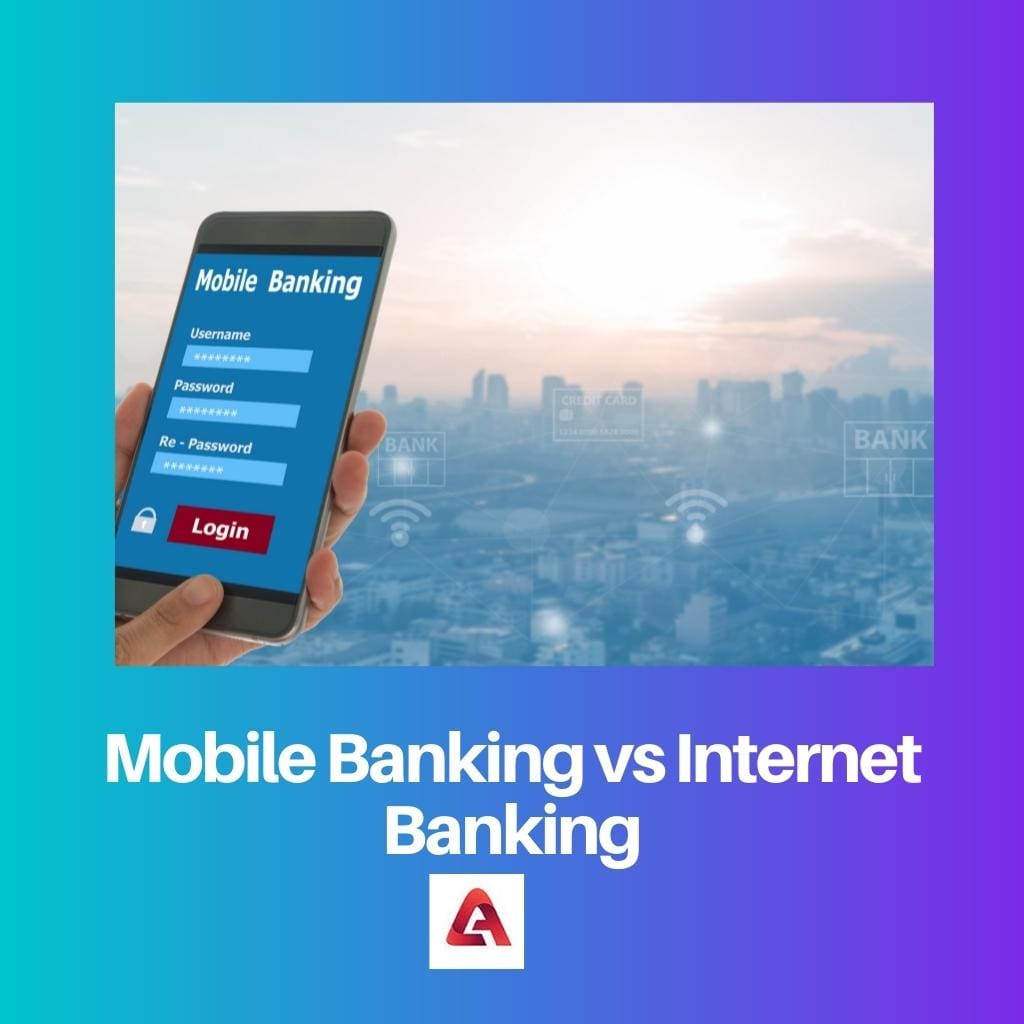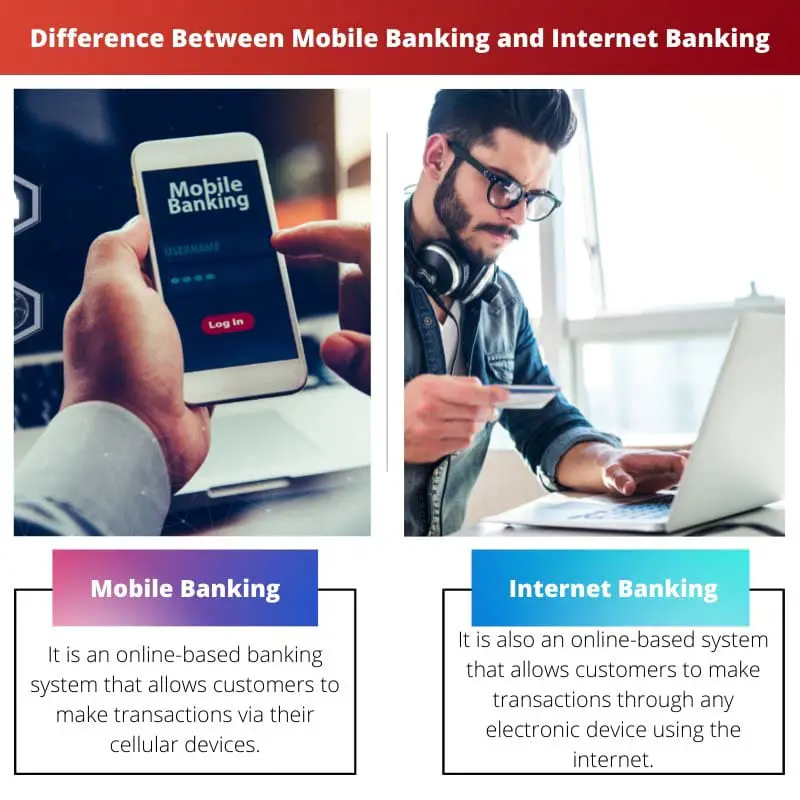Mobile banking and Internet banking are two different but online modes of banking introduced by the banks only that enable their customers to make transactions whenever and wherever.
Both forms of banking require intense access and have their own uses. Both banking systems have made transactions and other bank-related issues so much easier that all we need today is a few clicks.
Mobile banking is the internet-based banking system by the banks that allows customers to execute their bank-related transactions via their cellular devices. Internet banking is much related to mobile banking only as it enables people to make transactions electronically, with the help of the Internet.
Key Takeaways
- Mobile banking allows you to conduct banking activities through a mobile device, while internet banking can be accessed via a web browser on a computer or mobile device.
- Mobile banking is more convenient for on-the-go banking transactions, such as checking account balances or transferring money. In contrast, internet banking is better for more complex banking transactions, such as applying for loans or managing investments.
- Mobile banking may have limitations on transaction amounts, while internet banking has higher transaction limits.
Mobile Banking vs Internet Banking
Mobile banking is an online transaction that is done using mobile phones or mobile computers. Mobile banking provides limited functions. In Internet banking, an Internet connection is required to make a transaction. In Internet banking, transactions can be done through an electronic device. Internet banking provides a lot of functions.

Mobile banking is an online banking mode by the banks that allows customers to perform transactions via cellular devices like smartphones or the tab.
Mobile banking allows you to make any financial transaction anytime and anywhere because you only need your smartphone. With the introduction of mobile banking, transactions are now at your fingertips within a few clicks.
On the other hand, Internet banking is also a form of online banking that allows customers to perform any financial transaction using the Internet on any electronic device.
Internet banking has contributed a lot to evolving the banking system as with the Internet form of banking, and you do not need to visit the exact branch of your bank for any small or big transaction.
Comparison Table
| Parameters of Comparison | Mobile Banking | Internet Banking |
|---|---|---|
| Meaning | It is an online-based banking system that allows customers to make transactions via their cellular devices. | It is also an online-based system that allows customers to make transactions through any electronic device using the internet. |
| Devices used | Mobile, tab, basically any smartphone. | Desktop |
| Functions | Mobile banking has some limitations in its functioning as it is quite complicated. | Internet banking has comparatively much more functions than mobile banking. |
| Transfer of Funds | Funds are transferred through NEFT or RTGS. | Funds are transferred through NEFT, TRGS, or IMPS. |
| Uses | Mobile banking is used for any short message service or immediate funds transfers. | Internet banking is more used by banks and their websites. |
What is Mobile Banking?
Mobile banking is a banking model that allows you to make transactions via your smartphone. Through mobile banking, you can make transactions anytime and from anywhere.
Many transactions occur from mobile banking, including bill payments, immediate funds transfers, monitoring the balance, booking tickets, etc.
Not just transferring the funds immediately, but the mobile banking system has made online banking much more secure as you can check your balance within a few clicks, get security alerts for any activity in your account, and much more.
In this digital age, mobile banking is the most convenient and easiest way for any bank-related transactions. The fact that it has made the ability to pay or get a check, transfer funds to anyone, and pay bills immediately is the reason why mobile banking has taken up the pace so fast.

What is Internet Banking?
On the other hand, Internet banking is also a form of online banking that allows customers to perform any financial transaction using the Internet on any electronic device.
Internet banking has contributed a lot to evolving the banking system as with the Internet form of banking, and you do not need to visit the exact branch of your bank for any small or big transaction.
In simpler words, internet banking is a system that has enabled people to make financial transactions much more conveniently from anywhere and anytime without any risk to their bank accounts. This can be done within a few clicks by using the bank’s website, and you are all set to go.
Online banking is so used and famous among almost every bank account holder and has made Internet banking a major part of every bank these days.

Main Differences Between Mobile Banking and Internet Banking
- The main difference between mobile banking and internet banking is that in mobile banking, you can make any bank transaction via your cellular device, but in internet banking, you need a desktop, and the transaction will take place at the bank’s website.
- The device needed for mobile banking is just your smartphone or a tab, while in internet banking, you need your laptop or computer.
- Mobile banking has some limitations in its functioning as it is quite complicated, while Internet banking has comparatively much more functions than mobile banking.
- Funds are transferred through NEFT or RTGS, while in Internet banking, funds are transferred through NEFT, TRGS, or IMPS.
- Mobile banking is used for any short message service or immediate funds transfers, while Internet banking is used more by banks and their websites.




